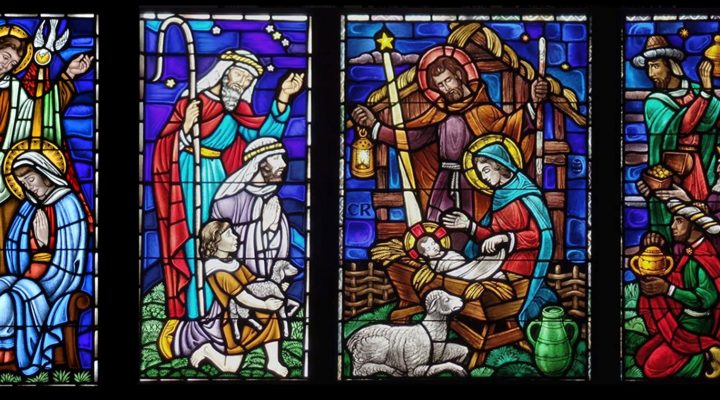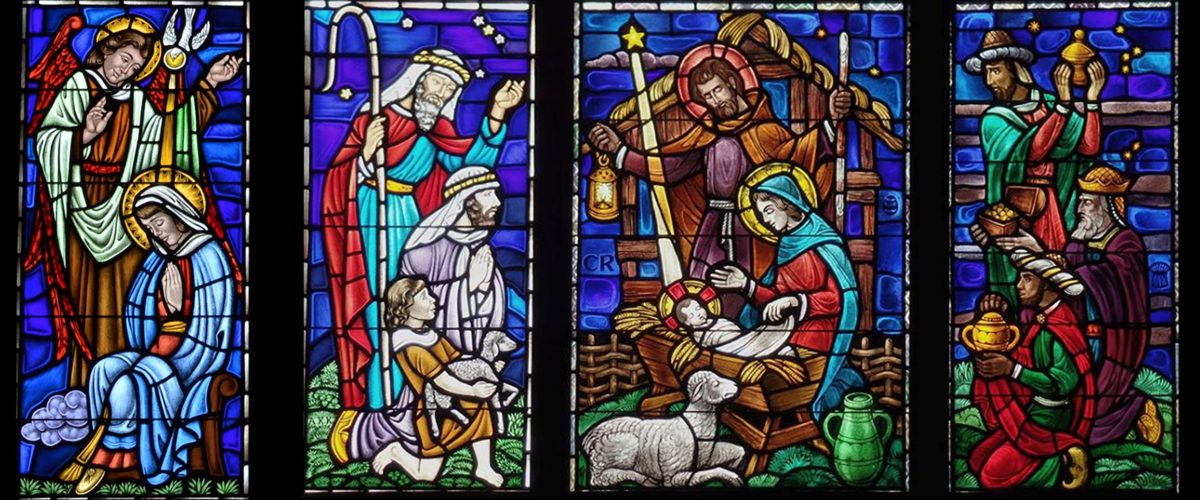BNG is pleased to partner with Baker Publishing Group and Perkins School of Theology at SMU to present a twice-weekly Advent reflection series written by Jack Levison. The reflections will be published every Tuesday and Thursday throughout the season.
The lament in Isaiah 63 is the perfect backdrop to Jesus’ birth — if it is the right backdrop at all. Another passage, another poem, in the Old Testament refers to holy spirit, but Psalm 51 understands that spirit in a dramatically different way from Isaiah 63. The psalmist begs God:
Create in me a clean heart, O God,
and put a new and right spirit within me.
Do not cast me away from your presence,
and do not take your holy spirit from me.
Restore to me the joy of your salvation,
and sustain in me a willing spirit.
The sacrifice acceptable to God is “a broken spirit; a broken and contrite heart, O God, you will not despise.”
In this Old Testament poem, the spirit is something within a human being — a new spirit, a right spirit, a willing spirit, a holy spirit. From this perspective, the holy spirit in Mary may be her own holy spirit: Mary is pregnant because of the sanctity of her spirit.
“Had Matthew intended to refer to the Holy Spirit, he might easily have said so with the definite article, the. But he does not.”
This reading is possible because the original Greek twice lacks the definite article, the: Mary is pregnant because of a holy spirit — her holy spirit. Had Matthew intended to refer to the Holy Spirit, he might easily have said so with the definite article, the. But he does not. His grammar, which is usually cautious and careful, leaves open the possibility that Mary’s sanctity makes her the right woman to bear the Messiah Jesus. She was pregnant due to a holy spirit; or, as the angel put it, the child conceived in her is the product of a holy spirit. Joseph need not worry; Mary’s spirit remains holy, appearances to the contrary.
There is irony here. According to tradition, David wrote Psalm 51 after his tryst with Bathsheba. (Bathsheba, remember, is one of the five questionable women, along with Tamar, Ruth, Rahab and Mary, who populate the genealogy that opens Matthew’s Gospel.) Purloined, the adulterous king begged for a willing, upright and holy spirit. Where is the irony? Mary, whose pregnancy looks like the product of an illicit tryst, has the willing, upright and holy spirit for which a chastened David pleaded.
With this particular Old Testament foreground, we are a long way from the traditional Christian belief that Jesus was “conceived by the Holy Ghost.” That interpretation fits the birth stories if Isaiah 63 lies in the background: The Holy Spirit that led Israel from within now works within Mary’s uterus to bring about a new exodus through the leadership of the Messiah. That interpretation does not fit the birth stories if Psalm 51 lies in the background: Mary has the sanctity of spirit that makes her the perfect mother of the Messiah. The angel assures Joseph, therefore, that this pregnancy does not arise from Mary’s infidelity, a lapse in discipline, but from her peculiar holiness.
Our discussion is not an effort to undermine a cherished Christian belief. It is an attempt to give grammar its due. The brevity of Matthew’s prose permits a variety of interpretations but prevents us, too, from holding any one too tightly.
This story may set Mary’s pregnancy into Israel’s narrative of exodus (Isaiah 63), or it may recall Psalm 51, in which a fallen king begs for a willing, upright and holy spirit. Whatever we make of Matthew’s telling of the story, the scent of the Jewish Scriptures is there, taking us back, like the trace of perfume or disinfectant, to a distant past. The birth of the Messiah from holy spirit evokes the thrill of the exodus and the chill of a contrite king.
“By writing so economically, so efficiently, Matthew opens the curtain to the entire scope, the breathtaking compass, of Israel’s Scriptures.”
But it is not a birth at all. Not exactly. Matthew begins the story in this way: “Now the genesis of Jesus the Messiah took place in this way” (Matthew 1:18, my translation). His selection of a single Greek word, genesis, translated too often and too blandly as birth, takes us back — over the entire span of the spirit in Scripture — to the poetry of creation. The majestic poem of creation in Genesis 2:4 concludes, “This is the book of the genesis of heaven and earth.” The cadence of creation rises with this solitary word. By writing so economically, so efficiently, Matthew opens the curtain to the entire scope, the breathtaking compass, of Israel’s Scriptures.
The birth of Jesus, therefore, is less an impregnation than a big bang — a genesis — that evokes the spirit’s hovering over a watery cosmic womb: “and the earth was invisible and unformed, and darkness was over the abyss, and a spirit of God swept over the water (Genesis 1:2).
Already, in Scripture’s 24th and 25th words, the spirit is active, even before a word is spoken. Now, that spirit swirls in the watery abyss of Mary’s womb.
 Jack Levison holds the W.J.A. Power Chair of Old Testament Interpretation and Biblical Hebrew at Perkins School of Theology at Southern Methodist University. He is known for his groundbreaking work on the Holy Spirit and topics both biblical and theological. This column is excerpted from his book An Unconventional God. Used here with permission of Baker Publishing, © 2020.
Jack Levison holds the W.J.A. Power Chair of Old Testament Interpretation and Biblical Hebrew at Perkins School of Theology at Southern Methodist University. He is known for his groundbreaking work on the Holy Spirit and topics both biblical and theological. This column is excerpted from his book An Unconventional God. Used here with permission of Baker Publishing, © 2020.
Also in this Advent series:


